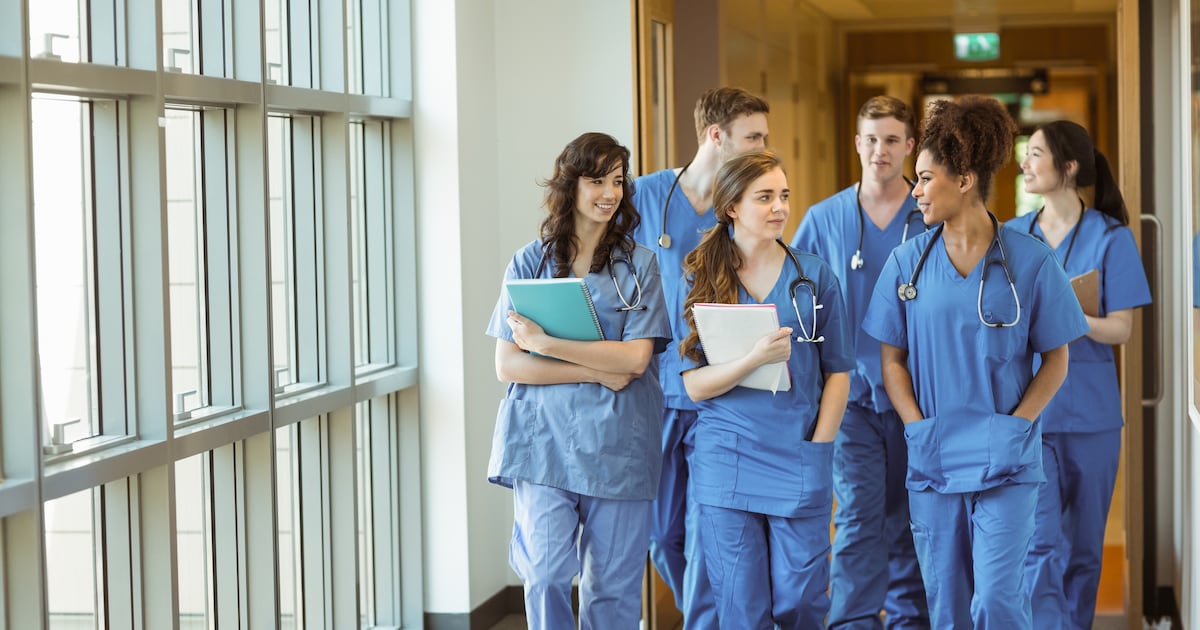Breaking News
Opinion: The future of medical education is here – but it still needs love

Read more on post.
Earlier this month, about 220 new students walked into Trinity College Dublin’s school of medicine to begin a newly developed medicine course designed for the future. This curriculum aims to reflect the technological revolutions, demographic shifts and ethical quandaries that will define their working lives and needs of the public in the years ahead.
Predicting that future is a dangerous sport but it is a necessity. If our hospitals, GP practices and care homes are to serve the public well in the decades ahead, we must anticipate the demands that will be placed on them.
Some changes are obvious. Artificial intelligence has promised the most significant change in human relations since the personal computer. Applied to healthcare, AI will certainly be able to analyse scans and pathology slides, triage urgent issues and spot patterns that once eluded even the sharpest eyes.
Add advances in robotics and you will have machines performing routine surgeries with precision and even providing care and companionship to vulnerable patients. Advances in therapeutics targeting genes and the immune system will lead to curing of cancers that once carried death sentences and mitigation of the worst effects of chronic illnesses from multiple sclerosis to kidney disease. Science will surely move faster than our imaginations.
But other forces will be less welcome. Sedentary lifestyles with ultra-processed diets will produce diseases for which no easy cures exist and the ageing population will need a renewed focus on wellbeing so that the later years are also quality years. Climate change, already claiming lives through respiratory distress and cardiovascular collapse, will cause renewed pressure on the health system through heat-related morbidity and forced migration.
Finally, if our experience of Covid-19 has taught us anything, it is that we have not conquered infectious disease. It is quite the opposite. Preparing for a new generation of infections, many of them resistant to our current antibiotics, may constitute the greatest threat to organised healthcare.
Then there is the ethical frontier. Gene therapies may offer breathtaking advances but also the possibility of human enhancement on a scale that society is barely prepared to discuss. Medical progress without moral reflection risks leaving us with capabilities we do not know how to use. Or worse still, with capabilities that we unwittingly misuse.
In this new reality, the job of the doctor expands. We must train graduates to recognise not only the ailments of the body but the patterns of inequality that define health outcomes. Vulnerable groups such as the poor, the homeless, migrants and the marginalised all need care that is culturally sensitive, patient-centred and free from the biases that too often distort medical decisions.
To this end, our new curriculum will include subjects such as disability, digital health, and climate and health. It will also include the proper interpretation of evidence and data because it is almost impossible to be a good doctor these days without a reasonably deep understanding of these concepts to counter the wild misinformation from sources as varied as TikTok and even some governments that were once the gold standard for useful medical advice.
Reflecting changing concerns in society as a whole, Trinity’s new curriculum also reaches beyond illness into wellbeing. Doctors must learn when prolonging life is not the same as improving it. That means difficult conversations about whether to offer five good years instead of seven bad ones and the scientific literacy to underpin such choices.
We will also teach our students that health policy matters. The decisive shifts in public health often come not from the consulting room but from legislation: seatbelt laws, smoking bans, or (in my own field) meaningful reform to protect sportspeople from concussion.
[ AI is poised to improve all areas of healthcare but must be handled responsiblyOpens in new window ]
Finally, while adding all this new material we will ask that our students remain curious and optimistic. while also retaining the scepticism necessary for integrity and good judgment; skills that are central to our proud tradition of teaching doctors to become scientists with a vision of care from the laboratory to the community.
Changing a medical curriculum is slow, complex work. It requires consultation with students, clinicians, regulators, patients and alumni, followed by layers of institutional approval. The focus tends to be on the science. But medicine itself is a balance of hard and soft skills and it is the latter that risk being lost in the age of machines.
After three decades in practice, I have concluded there are only two truly transformative forces in healthcare: a willingness to listen to patients, and love. AI will be a quaint fad one day; climate change will (hopefully) be mitigated by laws and behaviour; genetic engineering will become routine. But love and the modesty it implies have always been the hallmarks of a good doctor and will remain so, long after the technologies have moved on.
Colin Doherty is a neurologist and head of the school of medicine in Trinity College Dublin









